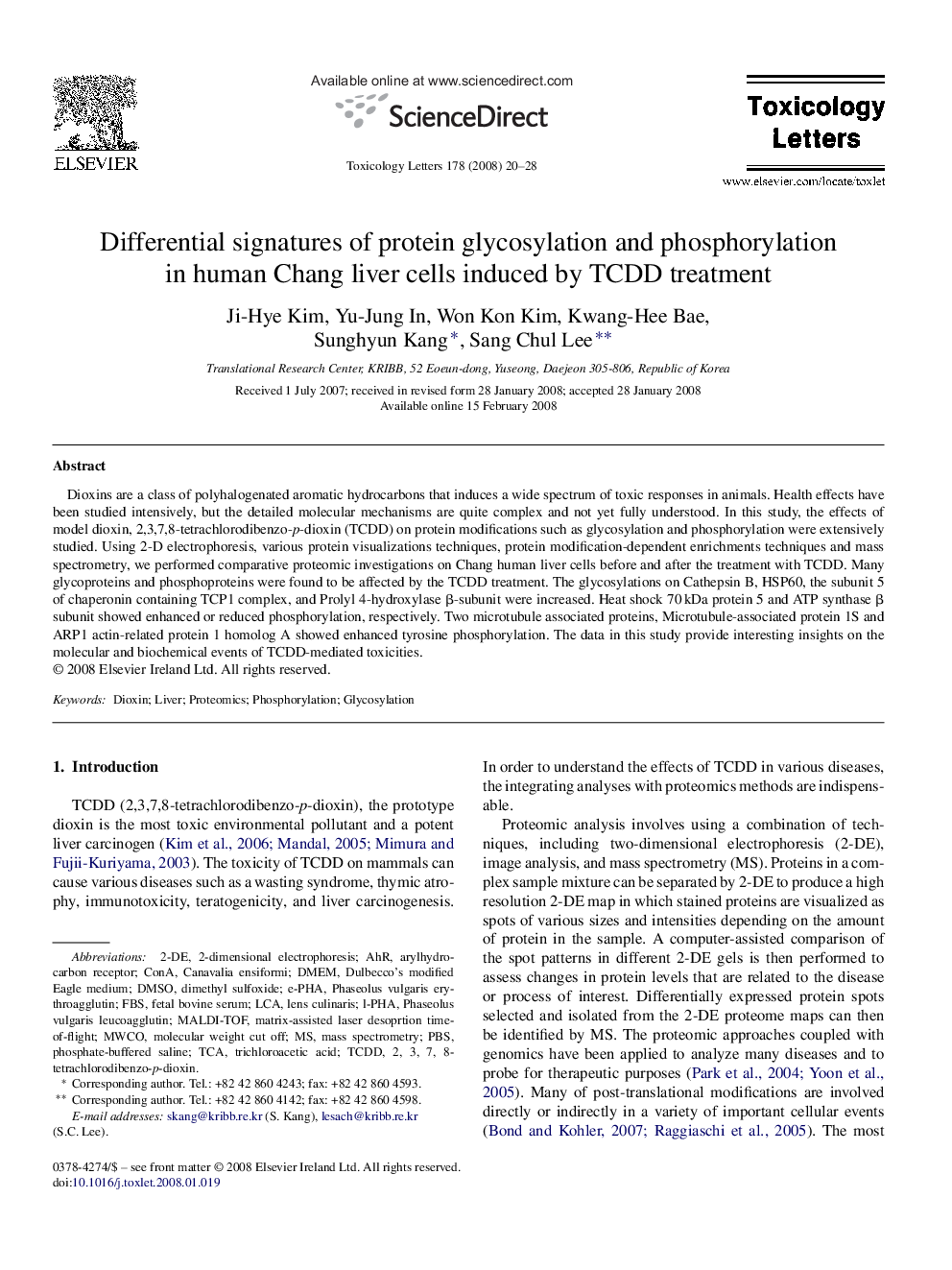| Article ID | Journal | Published Year | Pages | File Type |
|---|---|---|---|---|
| 2601962 | Toxicology Letters | 2008 | 9 Pages |
Dioxins are a class of polyhalogenated aromatic hydrocarbons that induces a wide spectrum of toxic responses in animals. Health effects have been studied intensively, but the detailed molecular mechanisms are quite complex and not yet fully understood. In this study, the effects of model dioxin, 2,3,7,8-tetrachlorodibenzo-p-dioxin (TCDD) on protein modifications such as glycosylation and phosphorylation were extensively studied. Using 2-D electrophoresis, various protein visualizations techniques, protein modification-dependent enrichments techniques and mass spectrometry, we performed comparative proteomic investigations on Chang human liver cells before and after the treatment with TCDD. Many glycoproteins and phosphoproteins were found to be affected by the TCDD treatment. The glycosylations on Cathepsin B, HSP60, the subunit 5 of chaperonin containing TCP1 complex, and Prolyl 4-hydroxylase β-subunit were increased. Heat shock 70 kDa protein 5 and ATP synthase β subunit showed enhanced or reduced phosphorylation, respectively. Two microtubule associated proteins, Microtubule-associated protein 1S and ARP1 actin-related protein 1 homolog A showed enhanced tyrosine phosphorylation. The data in this study provide interesting insights on the molecular and biochemical events of TCDD-mediated toxicities.
